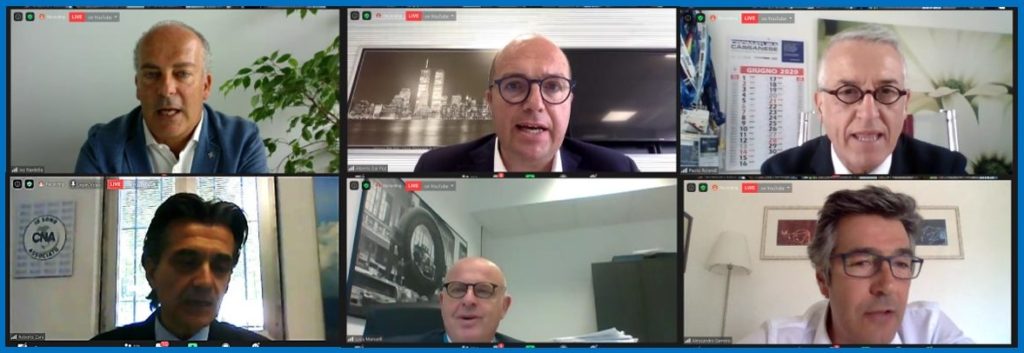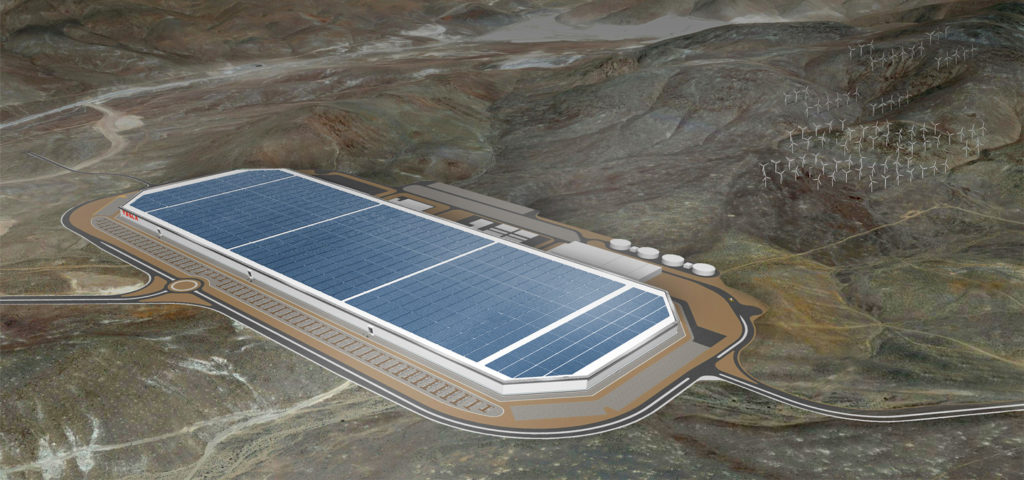ATOP has been manufacturing cutting-edge machines and automatic lines for the production of wound stators and rotors of electric motors since 1993.
Its offer includes the supply of consolidated production lines, as well as the development of tailored solutions to meet quality and production requirements in the numerous electric motors production technologies. From winding to testing and assembly processes, always following its sustainability path.
The two decades of well-established experience in the design and manufacturing of manual/standalone equipment and automatic machines up to fully automatic production lines with high productivity and quality, enable ATOP to satisfy even the most demanding projects providing cutting-edge solutions with high technological content.
In 2019 ATOP was acquired by IMA, thus fostering the creation of a new business segment for the Group and increasing its range of action.
Consolidated know-how and continuous innovation, combined with the support of IMA Group, are now strengthening ATOP’s capability to act as a top player in the market, ensuring not only its global leading position but also allowing IMA to fulfil its commitment towards sustainability.
ATOP is, in fact, part of the E-Mob program within IMA Zero project, launched by the Group last January. Since the beginning, ATOP is fully committed in the development of innovative production technologies in the field of e-Mobility. Thanks to IMA’s consolidated industrial capability, ATOP can definitely boost its operational, sales & service capabilities at worldwide scale accordingly.
Moreover, with the participation in the IMA Digital project too, the synergy in terms of new smart digital products and solutions is further reinforced. Actually, ATOP has been the first company of the Group to use the new Remote FAT (Factory Acceptance Test) platform, now available by the IMA Group.
Thanks to this successful experience, ATOP has reconfirmed the opportunity to carry out the remote checking procedures of its lines, still in full cooperation with the Customer Technical Team, but without their physical presence on site.
In the next steps, ATOP will work to strengthen its market positioning as a company working with leaders of the sector and to highlight IMA’s presence in this field.
Atop, now part of the Ima Group
Investment for building a manned multicopter
A South Australian company Alauda that is building a manned multicopter to compete in its flying electric car racing series has been funding from leading technology venture capital firms Saltwater Capital and Jelix Ventures. Leading FX and money management firm Equals and German logistics company DHL have also both backed Alauda with support and funds.
Alauda will use the investment to ramp up design and manufacture of its vehicle, which it aims to test with a pilot aboard before the end of the year.
Alauda also owns Airspeeder, the racing league that plans to host a flying car series at various global locations from as early as next year.
Alauda formed in 2015 and also has an office in London in close proximity to international motorsport bodies and global brands.
Manufacturing, towards a real recovery
The Italian and European mechanics urgently needs to sparkle, exploiting at best the paradigms of the new post Covid-19 normality.  Senaf has organized an interesting webinar on the subject, highlighting the impellent need of creating sound business networks, especially for SME.
Senaf has organized an interesting webinar on the subject, highlighting the impellent need of creating sound business networks, especially for SME.
A positive sign coming from Senaf – which on June 10th 2020 organized an event to discuss and to compare future ideas and projects in the current context and for future scenarios – is undoubtedly the confirmation of MECSPE exhibition, scheduled in Parma from 29th to 31th October 2020. The President of Tecniche Nuove Group, Ivo Nardella, informed with enthusiasm and confidence that the exhibition will maintain its numbers foreseen at the origin, with 1,700 companies that will be on stage complying with the rules prescribed by the Superior Health Institute.

In the Digital Talk “Made in Italy Manufacturing: Ideas and projects for the sector upswing” the witness by the representatives of important trade associations that mainly represent the SME world, such as Alberto Dal Poz – President Federmeccanica, Roberto Zani – President CNA Production and Paolo Rolandi – National President of Confartigianato Mechanical Federation, was heartfelt in communicating how much indispensable is an incisive intervention in the bureaucratic and financial ambit by political decision makers.
It is instead desirable that on their turn companies build business networks permitting to create a stronger and sounder manufacturing chain, with more trump cards in Italian and international ambit.
The speech by Luca Manuelli, President CFI – Smart Factory Cluster, underlined instead how the digital transformation plays a crucial role in the recovery of “a new normality”, where education and new competences are key elements of a development towards a resilient interconnected and integrated factory, able to satisfy the more and more important smart working requirements.
Chaired by Alessandro Garnero – editorial director, Manufacturing Division of Tecniche Nuove Group, the Digital Talk “Made in Italy manufacturing: Ideas and projects for the sector upswing”, was the first date of a new cycle of Mecspe virtual meetings dedicated to the manufacturing 4.0 world.
A mobile robot for construction sites
Husky A200 is a mobile robotic platform designed to be used for autonomous logistic tasks on construction sites.
Pursued by the Fraunhofer Italia Innovation Engineering Center, this project is one of the chances to advance the cause of digitalization in construction and bridge the gap between robotics and the building industry.
Researchers at this center based in Bolzano, Italy, are developing a software interface that will enable mobile robots to find their way around in construction sites.
They are tapping the technology called building information modeling (BIM) to develop software systems and interfaces that receive time-sensitive data such as information about obstacles that the robot cannot detect with its sensors. This way, the robot can be alerted to things like an open cable pit or elevator shaft on a given day at the construction site so that it can navigate around these pitfalls.
Designed for harsh environments, this mobile robotic platform is equipped with an electronic control unit and acceleration, laser and inclination sensors to help it navigate rough terrain.
The information the robot platform receives by means of BIM data can help improve its navigation capabilities and augment its sensory perception. This team aims to make the most of available digital building data on the construction site. The main benefit in this use case is that this data enables the mobile robot to transport heavy loads such as construction materials and tools in a constantly changing environment to lighten the workload of humans on the construction site.
FCA and city of Turin to trial automatic switch to electric mode for hybrid cars
On June 3, FCA informed that a collaboration agreement was signed between the Department of Transport, Infrastructure and Mobility of the City of Turin and Fiat Chrysler Automobiles to test a system that allow its hybrid plug-in cars to automatically switch to electric-only mode when entering congested city centres.
The project is named “Turin Geofencing Lab” and involves the city authorities and public transport agency GTT (the Operator of public transport companies in Turin), 5T (a city-owned company that manages the ZTL access authorizations) and Centro Ricerche Fiat (the brand’s development center for drive trains, vehicle systems, materials and innovative processes to improve the competitiveness of vehicle models).
The system is based on a prototype system with fully integrated on-board sensors allowing a hybrid vehicle to recognise when it is entering a restricted traffic zone (Zona a Traffico Limitato, ZTL) in the inner city of Turin.
The on-board electronics will then automatically turn off the internal combustion engine and switch to electric mode.
This would allow hybrid cars to enjoy dispensations for electric vehicles in the city centre (the ZTL area), including dedicated parking spaces.
The system has been initially tested on the new Jeep Renegade 4xe hybrid plug-in model. The tests could be extended to the group’s other hybrid models from next year.
The COVID-19 crisis has not significantly delayed FCA’s plans to launch its first full-electric and hybrid models. An electric version of the Fiat 500 small car and plug-in hybrid versions of Jeep’s Renegade and Compass models are due to hit the market this summer.
Roberto Di Stefano, FCA’s Head of EMEA e-Mobility, said: “The Turin Geofencing Lab project represents a great collaboration between the city of Turin, which has to set strict environmental protection rules, and a company like FCA, which must find innovative, affordable solutions for drivers to help improve air quality in our cities. Once this unique pilot project with the city of Turin is completed, we will offer the same technology to other local governments in Italy and abroad.”
Delivery robots providing a vital service during the quarantine
Robots provided a much-needed connection to the outside world in Milton Keynes, the small city about 50 miles northwest of London, locked down to fight coronavirus.
Two years before the pandemic, a start-up called Starship Technologies deployed a fleet of rolling delivery robots in Milton Keynes, one of the fastest-growing cities in Britain, with a population of 270,000 and a vast network of bicycle paths, is perfectly suited to rolling robots.
The squat six-wheeled robots shuttled groceries and dinner orders to homes and offices. As the coronavirus spread, Starship shifted the fleet even further into grocery deliveries. Locals could buy from the corner store with no human contact.
The Service
Starship Technologies is revolutionizing deliveries with autonomous robots. They are designed to deliver food, groceries, and packages locally in minutes. The delivery robots have travelled tens of thousands of miles and met millions of people across 100 cities around the world. They drive autonomously but are monitored by humans who can take control at any time. Starship was founded by two Skype co-founders, Ahti Heinla and Janus Friis. Former AirBnB executive Lex Bayer is CEO.
The robots already in operation in Fairfax, VA (George Mason University); Flagstaff, AZ (Northern Arizona University); Pittsburgh, PA (University of Pittsburgh); Monkston (Milton Keynes, UK); London; Hamburg (Germany), and Tallinn (Estonia).
What are some of the robot’s tech specs?
The robot weighs around 20 kg empty and the delivery compartment can hold up to 10 kg. It can travel up to 6 km/h and it uses a sensor suite for navigation and situational awareness.
The GPS and CV based navigation uses proprietary maps and allows for 1 inch navigation precision.
The robots can drive autonomously in pre-mapped areas. The mapping process is highly efficient and involves the robots under human control for the first runs. After the routes have been mapped, the robots can at any given time turn to remote human operators for assistance when making decisions in unexpected situations or when dealing with social interaction.
The fight to the virus has an electric motor
On a global scale, the idea of boosting the fight to Covid-19 through the collaboration between Medtronic (global manufacturer of medical equipment and solutions), SpaceX and Tesla for the implementation of lung ventilators for intensive care has aroused justified echo.
With this initiative, Medtronic intended to involve, first of all, the aerospace industry SpaceX manufacturer and the international electric mobility Tesla brand.
Elon Musk’s company has then confirmed the possibility of effectively contributing in the achievement of the precious and ambitious target that Medtronic itself has set. In other words, increasing its output of bmechanical ventilation systemsy 40%, to provide solutions against the emergency timely, after allocating an additional budget of 10 million dollars for research through its foundation.
Initially sceptical about the actual dangerousness of the virus, Musk not only changed his mind but he also undertook strong actions, first for finding over 1,200 made in China lung ventilators – on whose operation arguments did not miss – and then with an even more impressive move.
That is to say deciding to open again that Gigafactory in Buffalo, New York State, which like the vast majority of North American manufacturing facilities had been compelled to lockdown since the last week of March.

Therefore, where they developed solar panels and the components for the innovative fast recharge Supercharger V3 network, support technologies to Covid-19 patients and health operators started being shaped. The tycoon’s commitment was not limited to that because press sources have reminded that works are proceeding to reconvert a part of Californian Fremont factory’s lines, still for the implementation of hospital technologies.
Medtronic in Italy is playing a protagonist role in the world, in the ambit of the strategies for the fight to Covid-19. Besides developing the supplies of devices and technologies, it is the focus of a variety of projects that in our Country have for instance concerned the specialized induced activities of Mirandola district and have been fulfilled in strict collaboration with innovation incubators and accelerators such as Maverx Foundation.
(By Roberto Carminati)
Weg, in-house safety and guaranteed supplies to industries
WEG has strengthened the policy of internal safety against COVID-19 emergency, guaranteeing the continuity of supplies to essential market segments. With branches in 36 Countries and factories in 12 nations, WEG’s productive activities are increasingly demanded by food, energy and infrastructure industries.
In this crisis time, WEG products play an essential role in terms of energy supply, especially for the creation of temporary hospital structures. WEG’s strategy precisely aims at eliminating any hitch in the supply chain for all sectors deemed of primary importance, ascribing utmost priority to the supply of equipment for hospitals, health structures, pharmacies and supermarkets.
Moreover, the enhancement of WEG procedures guarantees the safety and the protection of the labour force on a world scale, which counts over 31,800 workers.
WEG’s productive activity has prosecuted with a reduced number of workers, in compliance with the directives that impose the social distancing; besides, where possible, employees have started operating in “smart working” modality.
SUV Volvo, the hybrid plug-in is coming
Volvo’s race to zero emissions is going on. Despite the period of stop to alive presentations and to road tests owing to the Coronavirus emergency, the last novelty by the renowned Swedish automotive company is shining with confidence: the SUV in hybrid plug-in version with overall power of 262 HP and autonomy up to 45 km in electric.
Next September lands on the Italian market XC40 Recharge T5 Plug-in Hybrid, the hybrid recharge version of the compact SUV that, since its release in September 2017, has become Volvo’s best- seller in Italy, with over 21,500 units sold until now.
The Recharge T5 Plug-in Hybrid version, like all XC40, springs from Volvo CMA (Compact Modular Architecture) compact platform, conceived to host the technical elements connected with electrification.
– 82 HP electric motor
– Maximum cumulative power: 262 HP
– Maximum torque: 425 Nm (265+160 Nm)
– Maximum speed: 180 km/h (self-limited)
– Acceleration 0-100 km/h: 7”3
– Tank capacity: 48 litres
– Consumption (WLTP): 2.0-2.4 l/100 Km
– CO2 emissions (WLTP): 45-55 g/Km
– Battery capacity: 10.7 (8.5) KW nominal (usable)
– Maximum autonomy in electric: 45 Km
A XC40 Recharge T5 Plug-in Hybrid is entrusted with the important task of impressing the decisive boost to the diffusion of the plug-in hybrid Volvo technology in Italy. The target is to make plug-in hybrid variants represent 16% of total sales of XC40 for 2020, an important driving element to allow plug-in hybrid models to totalize 15% of Volvo global sales in Italy.
On a global scale, the target of Volvo Cars for 2020 is that plug-in hybrid cars achieve 20% of total sales.
Digital Solidarity: you can free browse Tecniche Nuove Group reviews until May 31st
Tecniche Nuove goes on supporting professionals and enterprises by joining the “Digital Solidarity” initiative that provides the free access to the digital copies of the Group’s magazines.
The initiative, promoted by the Ministry of Innovation Technology and Digitalization, gives the opportunity, through apps and digital magazine kiosks, and sending the request via the following page www.semprepresenti.it/solidarieta-digitale, of free browsing the available review issues from this month until next May 31st.

“In a moment of serious limitations owing to the health emergency in course, we are going to back productive and professional activities with our B2B communication platforms. We support business education and culture because we cannot foresee but we can get ready for the future, the next one, too”
Tecniche Nuove Group is leader in specialized publishing and one of the most important players in Italy in the sector of exhibitions and conventions, in professional education and in B2B communication development.
Manufacturing Division reviews are among all free browsable magazines until May 31st. We are mentioning some of them: Macchine Utensili, Lamiera, Automazione Integrata, Automazione Industriale, Il Progettista, Logistica, Organi di Trasmissione, Plastix and many others.










